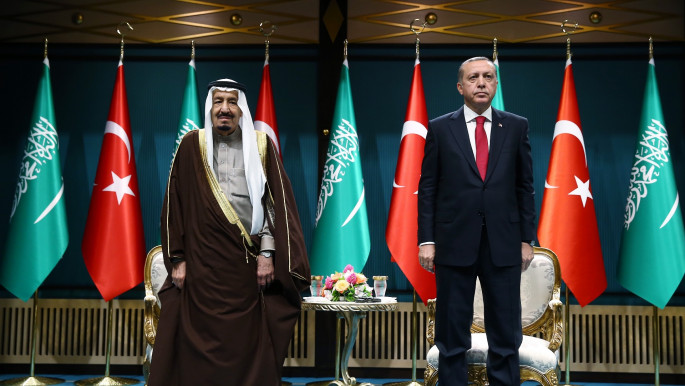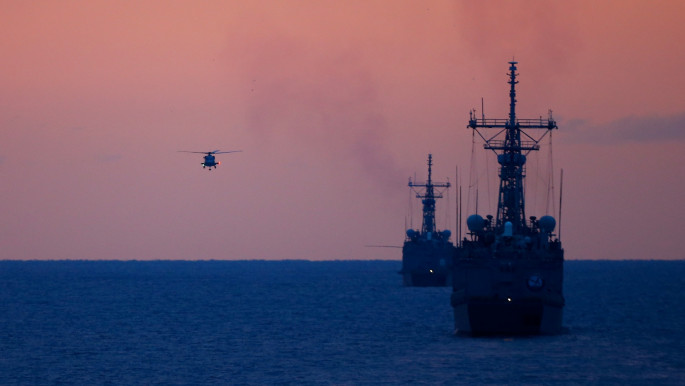Why rumours of a Biden-Erdogan showdown are greatly exaggerated
Could this farewell move from the Trump administration, a month before the inauguration of Joe Biden as the 46th President of the United States, set the course of relations between Washington and Ankara under the new US leadership?
Since the outcome of US elections was confirmed, there has been a general feeling that Joe Biden would pursue a more aggressive and less tolerant policy towards Turkey compared to his predecessor. Yet there are indications that Ankara could re-emerge as an invaluable ally for the new administration, and a rapprochement between the two powers might be more likely.
There is no doubt that US foreign policy has been totally reshaped during Trump's term in office. He provoked widespread concerns when he called NATO "obsolete", implying that he would gradually depreciate the footprint of the alliance and limit the US commitment to the Treaty.
The universal character of the US as a perceived guarantor of stability and promoter of democracy has fundamentally changed, as Trump chose a far more limited international role for the US and applied in practice his "America First" doctrine.
 |
The US decision to sanction Turkey has once again fuelled debate about what's next for US-Turkish relations |  |
As the outgoing president had promised before the 2016 US elections, there have been no further US military operations abroad and the US footprint regarding ongoing conflicts and disputes across the Middle East and the Eastern Mediterranean has been gradually minimised, with the unique exception in Israeli-Arab relations.
In this sense, American involvement has been insignificant in the Libyan and Syrian conflicts, the Azeri-Armenian war and the diplomatic impasse between Greece and Turkey. The US disinterest in those places has created a geopolitical vacuum, eventually enabling a stepwise expansion of Russia and Turkey.
 |
|
| Read more: What is driving Saudi Arabia's apparent rapprochement with Turkey? |
In the same period, US-Russian relations went through a repositioning phase. Because of the special ties between Trump and the Russian president, Moscow and Washington achieved a modus vivendi, which signalled a new era between the two powers.
Notwithstanding the numerous sanctioning measures against Russia during Trump's term, there has been no tremendous impact or serious escalation in bilateral affairs from 2017 to 2020, and, most importantly, Trump openly allowed Russia's international expansion.
Trump avoided a military build-up in the Baltic states and has carefully handled overall relations with Kremlin. The US threat perception during the Trump years has undoubtedly shifted towards China, essentially counterbalancing and enhancing the relationship with Russia.
Regarding Turkey, Trump has indeed followed a more lenient policy across the Eastern Mediterranean, however one should not ignore the fact that decisive measures have been promptly adopted on specific occasions. Let us recall the case of Pastor Brunson's detention and the American reaction in August 2018; the first time that sanctions have been imposed on such high-level officials, including two government ministers.
 |
Turkey could re-emerge as an invaluable ally for the Biden administration |  |
Furthermore, Trump increased tariffs for certain Turkish imports, a move that seemed like a final blow at a point when the Turkish economy was already struggling. By mid-August 2020 the Turkish lira had reported unprecedented weekly losses. Such actions along with the decision on S-400 sanctions before the end of the presidential tenure imply that Trump's Turkish-friendly policy has been occasionally overstated.
Returning to the Russian factor, Biden's attitude will certainly be less welcoming. The new US administration has already declared his intent to tackle several issues, from the expansionist agenda of the Russian Federation to controversies over domestic affairs and alleged human rights abuses.
The President-elect has stated in the past that Vladimir Putin has "no soul" and recently called him an autocrat, with Biden clarifying that he would embrace an unbending approach against Russia, which could probably evolve into a Cold War-style relation of progressive rivalry.
Turkey's role
This new strategy will be mostly based upon regional alliances and the reinforcing of NATO's presence, and this is exactly where enhanced relations with Turkey could fit in. These geopolitical imperatives make Ankara, by nature an adversary of Moscow, a de facto regulator of any Russian plans for expansion.
Further to the Russian perspective, the potential entente with Turkey is also supported by Biden's choice of Antony Blinken for the next US Secretary of State. Even though Blinken has expressed his concerns about current challenges, including the S-400 purchase and the two-state Turkish proposed plan for Cyprus, he has explicitly stated that Turkey is an essential NATO ally and a "vitally important country".
 |
|
| Read more: From Syria to Nagorno-Karabakh: Russia and Turkey's complex regional rivalry |
Anthony Blinken served in the State Department as a Special Assistant to President Bill Clinton and Senior Director for Strategic Planning from 1994 to 1998, and his duties included the management and control of the foreign policy planning process.
An indicative case of the US approach towards Turkey, during Blinken's term, was the infamous Imia incident. In early January 1996, a Greek-Turkish confrontation in the Aegean Sea established the context of a still ongoing dispute regarding maritime zones in the Eastern Mediterranean.
At a time when the debate is more relevant than ever, one cannot overlook how the Greek government mishandled that crisis, alongside the passive stance of the Clinton administration - a rather surprising reaction given that foreign policy strategies under Clinton in the Balkans region essentially set the ground for Turkish claims in the Aegean ever since.
 |
The US could seek to enhance ties with Turkey given its strategic significance in the region and the new administration's potentially hostile stance towards Moscow |  |
Often, historical facts can affect and shape, to a degree, the political relations between two countries. In the case of Russia and Turkey though, this assertion works the opposite way around. Regardless of the given political context or the international status quo, Turkey and Russia have diachronically been - and will be - in a constant antagonism due to their geographical location.
Further to the historical friction over religious factors - with Russia standing as the guarantor of Christian populations and Turkey pushing for the progressive expansion of Islam - the control of the Turkish straits has always been a key parameter behind the numerous conflicts between the two powers since the 16th century.
 |
|
| Read more: Biden and the Eastern Mediterranean: Greek optimism, Turkish caution |
With Turkey controlling the Bosporus and Dardanelles and occasionally blocking Russia from free access to the Mediterranean and immense global seaways, a persistent and long-term antagonism has been consolidated, regardless if we are talking about Imperial Russia or the Soviet Union and the Ottoman Empire or the Turkish Republic.
This framework is still present today, especially when considering the Russian Naval presence in Tartus, with the only route from the Black Sea bases towards Syria being through the Straits.
At the same time, while both powers have been exponentially expanding their international influence and presence since 2015, they currently have opposing interests in an area spanning from Syria to Central Africa and from Libya to the Caucasus.
Ultimately, the US could seek to enhance ties with Turkey given its strategic significance in the region and considering that the new administration will adopt a rather hostile stance towards Moscow. To be clear, the Biden government could seek to establish strong links with the Turkish state, not personally with Erdogan.
However, considering the opportunistic nature of the Turkish leader, one can expect that Erdogan would swiftly comprehend how beneficial an alignment with the US regional strategy could be.
Alex Kassidiaris is an International Security Advisor based in London. He holds a master's degree from the War Studies Department of King's College London and his research interests include security and politics in the Eastern Mediterranean and Middle East.
Follow him on Twitter: @AlexKassidiaris



